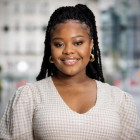Plenaries
The OEB Plenary Debate
Date Thursday, Dec 2 Time – Room: Potsdam I
This House believes Education has failed to learn the lesson of Covid-19
Across the world, the pandemic has been extremely disruptive for education at every level. Workplaces, schools, colleges and universities have all faced immense challenges. Educators, learning professionals and students have had to adapt rapidly to a new reality. Many feel badly let down by a system which, they say, has failed them. Others say the disruption Covid has brought is exactly what global education needed. But has education learned the lesson? Is the change Covid has brought systemic? And is it sustainable? Can education face the future with confidence? Or is it just as likely to fall victim to the next big shock?

Donald Clark
eLearning Expert and Strategist, Plan B Learning, UK
Donald Clark is a Learning Tech Entrepreneur, CEO, Investor, Author, Podcaster, Blogger and Speaker. He was CEO and one of the original founders of Epic Group plc, which established itself as the leading company in the UK online learning market, floated on the Stock Market in 1996 and sold in 2005. He has been involved at all levels of investment – angel, VC, growth, PE and IPO. As well as being the CEO of Wildfire, an AI learning company, he also invests in, and advises, EdTech companies.
An investor and board member of learning companies Cogbooks (sold in 2021 to Cambridge University) and Learning Pool (sold 2021 for $200 million), he was also on the Boards of City & Guilds, Learn Direct, University for Industry and the Brighton Dome and Festival. Wildfire delivers AI products and consultancy. He has published 3 books, on ‘AI for Learning’, ‘Learning Experience Design’ and ‘Learning Technology’. His fourth book on Learning in the Metaverse has just been commissioned.
Donald has over 37 years experience in online learning, video, games, simulations, semantic, adaptive, chatbot, social media, mobile learning, virtual reality, AI and Metaverse projects. He has designed, delivered and advised on online learning for many global, public and private organisations. An evangelist for the use of technology in learning, he has won many awards, including the first ‘Outstanding Achievement in E-learning Award’ and ‘Best AIM Stock Market Company’, ‘Most Innovative Online Product’, ‘Best Online Learning Project and ‘JISC EdTech Award’.
An award winning speaker at national and international conferences, he has delivered keynotes in the UK, Europe, US, Africa, Australia, Middle and Far East.
His podcast series ‘Great Minds on Learning’ and 200+ articles on learning theorists are all online…… also a regular blogger (15 years+) on learning technology.
Books
AI for learning (2020) https://amzn.to/3HmAcIN
Learning Experience Design (2021) https://amzn.to/3zDMdYk
Learning Technologies (to be published Jan 2023)
Metaverse and learning (to be published late 2023)
Blogs
Series on 200 learning theorists, from the Greeks to the Geeks https://bit.ly/3OdrPBs
Podcasts
Great Minds in Learning
GREEKS https://bit.ly/3HpowVy
ENLIGHTENMENT http://bit.ly/3oy80ec
BEHAVIOURISTS http://bit.ly/3iUnINE
COGNITIVISTS http://bit.ly/3oUxOBK
PRACTICE http://bit.ly/3aAK5mk
INSTRUCTIONALISTS http://bit.ly/3FEdYk8
MORALISTS http://bit.ly/3qgdQC8
SOCIAL https://bit.ly/3MTLGEw
ASSESSORS bit.ly/3IX2A3C
AFFECTIVE https://bit.ly/3HsDDhe
INFORMAL https://bit.ly/3zym8Km
WORKFLOW https://bit.ly/3xU4Q9n
ONLINE LEARNING https://bit.ly/3Qn1Vgw
The Learning & Development Podcast with David James https://bit.ly/3zzCGSd
Reimagining Education with James Manion bit.ly/32D2LSf
AI, Data, and Optimism with Leading Learning https://bit.ly/3tEyQUa
AI is the New UI with John Helmer apple.co/3qF8oas
Enhancing learning experiences using AI with Learning Science bit.ly/3FJGdNR
The History of Learning and the Learning of History apple.co/3sMjXQ2
Videos
Don't lecture me! bit.ly/3HmLOtT
TEDx Talk More pedagogic change in 10 years than last 1000 years bit.ly/3quRxqU

Mark West
Education Specialist, UNESCO, France
Mark West works in UNESCO’s Education Sector, where he examines how technology can improve the quality, equity, and accessibility of learning.
He is currently leading a project to develop a Global Declaration on Connectivity for Education and authoring a UNESCO report called ‘An Ed-Tech Tragedy’ about lessons learned following the global shift from school-based education to technology-based education during the COVID-19 pandemic.
He is also active in outlining guidance to make digital solutions more inclusive for people with low literacy skills, helping governments enact policies and practices to ensure that women and girls develop strong digital skills, and reviewing educational innovations. He has written extensively about technology and education, and his most recent publication, ‘I’d Blush if I Could’, led Apple and other technology companies to make major changes to the way Siri and other AI assistants project gender.
Prior to joining UNESCO in 2011, Mr. West researched education in Azerbaijan as a Fulbright Fellow and worked as a teacher and teacher trainer in the United States. He is a graduate of Stanford University.

Hillary Gyebi-Ababio
Vice President for Higher Education, National Union of Students
Hillary is NUS Vice President for Higher Education. She was previously the Undergraduate Education Officer and Chair of the Widening Participation Network at the University of Bristol Students’ Union. A champion of students, Hillary has worked on many projects that have looked to support the most marginalised students in education and beyond. From decolonisation to widening access work, she is extremely passionate in ensuring that students are at the centre of education and are the architects of their own education.
Links
Moderator

Harold Elletson
Editor / Senior Fellow, International communications consultant and editor of the eLearning Africa Report, United Kingdom
International communications consultant and editor of the eLearning Africa Report, UK Dr Harold Elletson is an International Communications Consultant and Senior Fellow of the Institute for Statecraft. He is a founding director of the Africa Forum on Business, Investment and Security, a member of the steering committee of OEB, a member of the Organising Committee of eLearning Africa and a consultant to ICWE GmbH. He is also the editor of The eLearning Africa Report. Dr Elletson was previously Director of the NATO Forum on Business and Security, which he created with support from the NATO Science Programme. A former Member of the United Kingdom Parliament (from 1992-1997), he served as Parliamentary Private Secretary to the Secretary of State for Northern Ireland in the early stages of the peace process and was also a member of the Select Committee on Environmental affairs. He served as a member of the Lancashire Education Authority (the Education Committee of Lancashire County Council) before being elected to Parliament where he represented the interests of schools and colleges in his constituency in discussions with Ministers and on the floor of the House of Commons. He is a Fellow of the Armed Forces Parliamentary Scheme and of the Industry and Parliament Trust. As a communications and public affairs specialist, he has advised many leading companies on aspects of their business in challenging markets, including BP in Azerbaijan and Alstom in Siberia. He has written widely on political and historical subjects and his first book, The General Against the Kremlin, that was published by Little Brown. His journalism has been published in a variety of newspapers and magazines. Dr Elletson holds a PhD in Social Sciences from the University of Bradford.